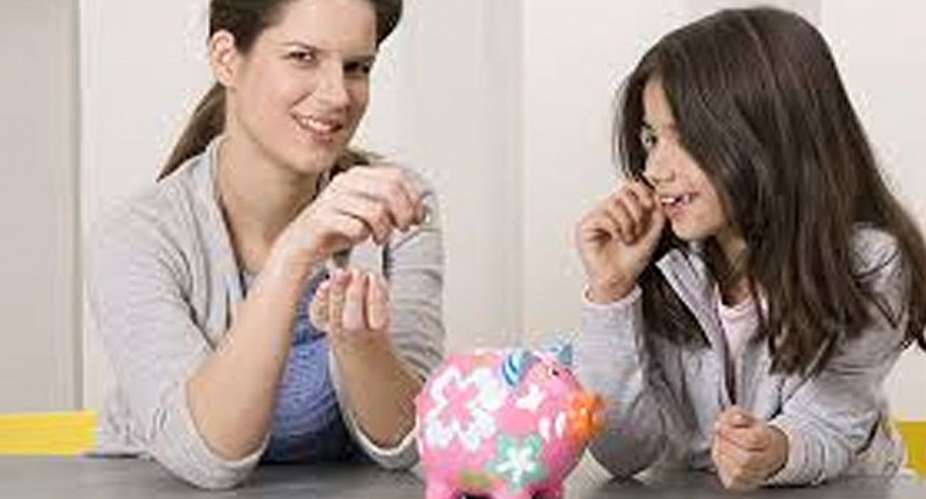As parents, some of our greatest joys come from witnessing those “first-time” milestones in our children's lives. I'm experiencing one right now: My daughter is buying her first car. All she can think about is hanging out with her friends. Meanwhile, I'm thinking this is a great time for the two of us to talk about the financial responsibility that comes with car payments, auto insurance and ever-increasing gas prices.
As the school year begins, you and your children may also be facing some financial firsts. Perhaps your middle schooler is saving for his first big purchase – probably the latest electronic gadget. Maybe your high school junior is getting her first after-school job or gearing up for a class trip. Chances are, money – and particularly personal finance – is something you and your kids don't talk about enough. Now is a great time to change that.
Even though money has an impact on practically every aspect of our lives, personal finance is usually relegated to the back burner – at home and at school. Only four states require a stand-alone personal finance course as part of the curriculum, and half have no requirements at all, according to Jump$tart Coalition for Personal Financial Literacy. What's more, research from my employer, Bank of America, found that although teens seek financial advice from their parents, many parents avoid the subject because they lack confidence in their own ability to manage their money. If parents don't discuss money with their kids – and teachers don't teach it – who is educating the next generation about these things?
Better Money Habits, a website created by Bank of America in partnership with Khan Academy, tries to make it easier to understand personal finance. Better Money Habits offers a different approach to grasping personal finance concepts through videos and other content covering topics ranging from building credit to making a budget to more complex transactions. The content can also prepare parents to guide their children through a number of financial firsts, including:
• Opening a first bank account: Encouraging children to develop an appreciation for money and saving at a young age can teach them important financial habits they can use throughout their lives. Savings accounts help children understand the time value of money by demonstrating how compound interest works and also teaches them the importance of establishing a relationship with a financial institution andbuilding credit, which will become important as they grow up.
• Understanding a first paycheck: Starting a first job is exciting and also represents independence. However, that first paycheck can quickly inspire panic if it doesn't match income expectations. Teaching teenagers about deductions for such things as income taxes and Social Security before they receive a paycheck can better prepare them for the reality and help them plan how to use the money they earn. Thisvideo helps break down the anatomy of a paycheck.
• Signing up for a first credit card: While it's essential to build credit, it's critical to avoid abusing it. Before your college freshman is tempted to spend up to his or her credit limit on late-night pizza deliveries, teach him or her how to use a credit card wisely. To help avoid debt, Better Money Habits offers a video that explains how credit card interest is calculated.
An analysis by credit-reporting firm Experian found that millennials (19-29 year olds) carry an average credit card balance of $2,682. The study also found that they have the highest card use of any generation, which means they have more debt than available credit. This is just one factor that affects credit scores, and here's a video that offers insight into other factors.
It's up to us, as parents, to make sure our children successfully navigate life's milestones, especially if they aren't learning personal finance in school. By teaching, encouraging and helping them learn from the good examples we set, our children stand a much better chance of making smarter money choices throughout life. We can contribute to establishing a more financially responsible generation.
Source: http://www.huffingtonpost.com/





 Lay KPMG audit report on SML-GRA contract before Parliament – Isaac Adongo tells...
Lay KPMG audit report on SML-GRA contract before Parliament – Isaac Adongo tells...
 Supervisor remanded for stabbing businessman with broken bottle and screwdriver
Supervisor remanded for stabbing businessman with broken bottle and screwdriver
 NDC watching EC and NPP closely on Returning Officer recruitment — Omane Boamah
NDC watching EC and NPP closely on Returning Officer recruitment — Omane Boamah
 Your decision to contest for president again is pathetic – Annoh-Dompreh blasts ...
Your decision to contest for president again is pathetic – Annoh-Dompreh blasts ...
 Election 2024: Security agencies ready to keep peace and secure the country — IG...
Election 2024: Security agencies ready to keep peace and secure the country — IG...
 People no longer place value in public basic schools; new uniforms, painting wil...
People no longer place value in public basic schools; new uniforms, painting wil...
 'Comedian' Paul Adom Otchere needs help – Sulemana Braimah
'Comedian' Paul Adom Otchere needs help – Sulemana Braimah
 Ejisu by-election: Only 33% of voters can be swayed by inducement — Global InfoA...
Ejisu by-election: Only 33% of voters can be swayed by inducement — Global InfoA...
 Minority will expose the beneficial owners of SML, recover funds paid to company...
Minority will expose the beneficial owners of SML, recover funds paid to company...
 Prof. Opoku-Agyemang has ‘decapitated’ the NPP’s strategies; don’t take them ser...
Prof. Opoku-Agyemang has ‘decapitated’ the NPP’s strategies; don’t take them ser...
